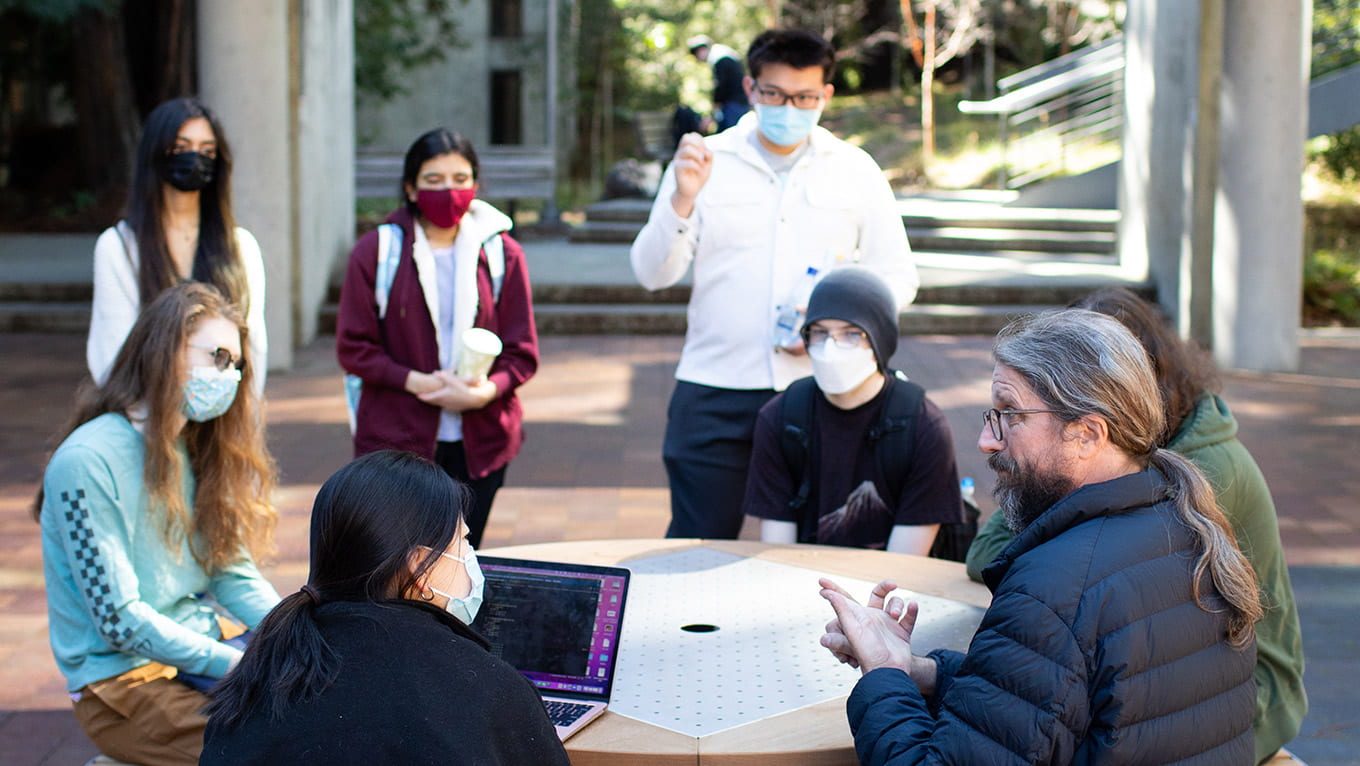As the new academic year gets underway, the UC Santa Cruz Baskin School of Engineering is building on its commitment to diversity, equity, inclusion, and accessibility through ongoing student success programming and new initiatives that enhance student belonging and learning.
“The academic success of every Baskin Engineering student is important to us,” said Jim Whitehead, associate dean of undergraduate affairs and professor of computational media. “Our programs prepare students, enhance our instruction, and give our hard working students a boost to succeed in our rigorous majors.”

Student success
Baskin Engineering’s Inclusive Excellence Hub (IEH), directed by Carmen Robinson, offers many resources and initiatives that empower students and promote their success. One of IEH’s programs is the Baskin Engineering Excellence Scholars (BEES). BEES prepares students for academic success before they start their first week of classes. Each September, the students participate in a two-week program that introduces them to tools and resources available on campus for academic, personal, and professional support.
Once classes begin, BEES students become members of the MESA Engineering Program (MEP). MEP is an academic enrichment program, serving students who are first in their families to attend college, are the first to enroll in computer science or engineering studies, or are from historically underrepresented groups in STEM.
Another student success initiative underway at the school of engineering is the Computational Media Department Research Explorations one-credit course. The course was modeled after the successful implementation of exploratory reading groups at Baskin Engineering, an effort funded by the National Science Foundation and led by David Lee, assistant professor of computational media and director of the UCSC Tech4Good Lab, and fourth-year computational media Ph.D. student Dustin Palea. Research Explorations exposes students to the more creative and socially relevant aspects of computing and helps establish pipelines into faculty research labs.
During two, five-week long sessions, undergraduate students work in groups of six to 10 to select, read, and discuss computing research papers. The reading group format fosters creativity, motivation, and belonging, and allows students to discover different topics of current research in the field and in Baskin Engineering faculty labs. Students interested in enrolling in Research Explorations should visit the Tech4Good Lab Exploratory Research Groups webpage.
Additionally, The Tech4Good Lab is furthering its efforts in making research accessible to all students through a program called the Collaboratory. The Collaboratory is a one quarter, 10-hour-per-week commitment, where students from all majors and interests, with or without prior research experience, can participate in research projects with real-world contexts. Each quarter has a new set of priorities and a range of projects to choose from, providing opportunities to gain valuable skills in areas such as web development, UI/UX design, user research, and machine learning. This quarter, the Collaboratory is hosting over 100 undergraduate students, who are a mix of computing-related and non-computing majors.
Inclusive pedagogy
This past month, 50 Baskin School of Engineering graduate students participated in the Preparing for Inclusive Teaching workshop, hosted by the Center for Innovations in Teaching and Learning (CITL). The two-day professional development program, led by STEM equity coordinator Noori Chai, is offered every fall to support new and returning STEM graduate student teaching assistants in strengthening inclusive teaching practices and strategies to foster a learning environment where all students can succeed. The program has a strong focus on gateway courses to help close equity gaps in first-year STEM classes and retain more students from historically underserved populations.
High attrition rates in engineering programs are often attributed to poor academic performance in first-year engineering classes. Specific factors—academic or personal—may present as barriers for students to be successful. To help identify students struggling early on in gateway engineering courses, Baskin Engineering Undergraduate Advising has partnered with faculty to implement the Feedback for Learning and Intervening with Purpose (FLIP) program. The program involves faculty conducting early assessments to identify which students in their classes are falling behind and need additional support. The assessments then get sent over to the Undergraduate Advising team so advisors can work individually with the students on strategies for academic success and locating additional support resources on campus, like tutoring.
For more inclusive excellence programming and resources, visit the Baskin Engineering IEH website.
– SHARE THIS STORY –
You May Also Be Interested In
-

2025 Dean’s Awards highlight outstanding Baskin Engineering undergraduate research in AI, cybersecurity, biomedicine, and more
-

Baskin Engineering students sweep SC Launchpad 2025 awards in technology and social impact categories
-

Computer engineering student develops AI tool to streamline grading and enhance learning

